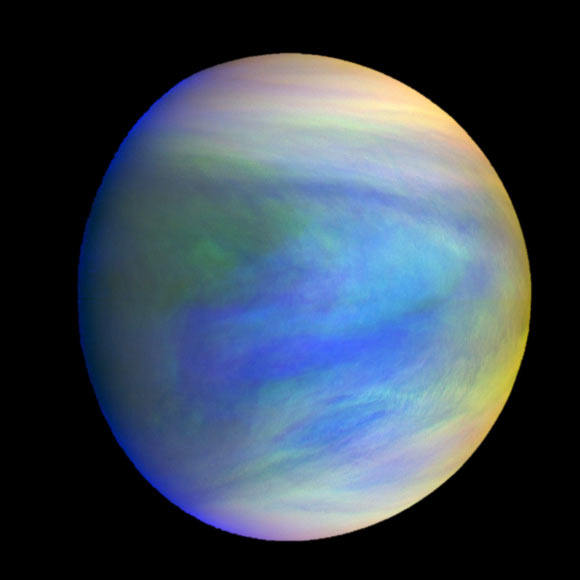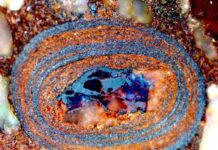What may be the first hints of life on Venus have been discovered by an international team of astronomers using observations from the James Clerk Maxwell Telescope (JCMT) on Maunakea. The team detected the gas phosphine in Venus’ upper clouds; on Earth phosphine is excreted by microbes that thrive in oxygen-free environments. The discovery was published in Nature Astronomy.
For decades, astronomers have speculated that the high clouds on Venus could offer a home for microbes—microscopic organisms floating free of the planet’s scorching surface, with access to water and sunlight, but needing to tolerate very high acidity. Now that phosphine has been detected it could point to extra-terrestrial ‘aerial’ life. The team reconfirmed the JCMT observations using 45 telescopes of the Atacama Large Millimeter/submillimeter Array in Chile. Both facilities observed Venus at a wavelength of about 1 millimeter, which is a very short-wavelength radio emission that can be detected only with telescopes at high altitudes, such as the summit area of Maunakea.
Astronomers ran calculations to see if phosphine could come from natural processes on Venus such as sunlight, volcanoes or lightning. The Massachusetts Institute of Technology led the work on assessing those sources but found none could generate the observed quantity discovered by the team.
University of Hawaiʻi at Hilo alumna E’Lisa Lee studied astronomy at the Hawaiʻi Island campus. She helped carry out the observations for the study while working as a JCMT telescope operator.
“An observed biochemical process occurring on anything other than Earth has the greatest and most profound implications for our understanding of life on Earth, and life as a concept,” Lee explained. “Being able to participate in the scientific process…was an incredible and humbling experience. It is my sincerest hope that further observations will allow for greater exploration of Venusian clouds and everything beyond.”
According to the team of astronomers, more observations need to be conducted to monitor gas levels they observed. If future studies continue to align with their discovery, researchers hope a spacecraft can be sent to Venus to take a sample of its atmosphere.















